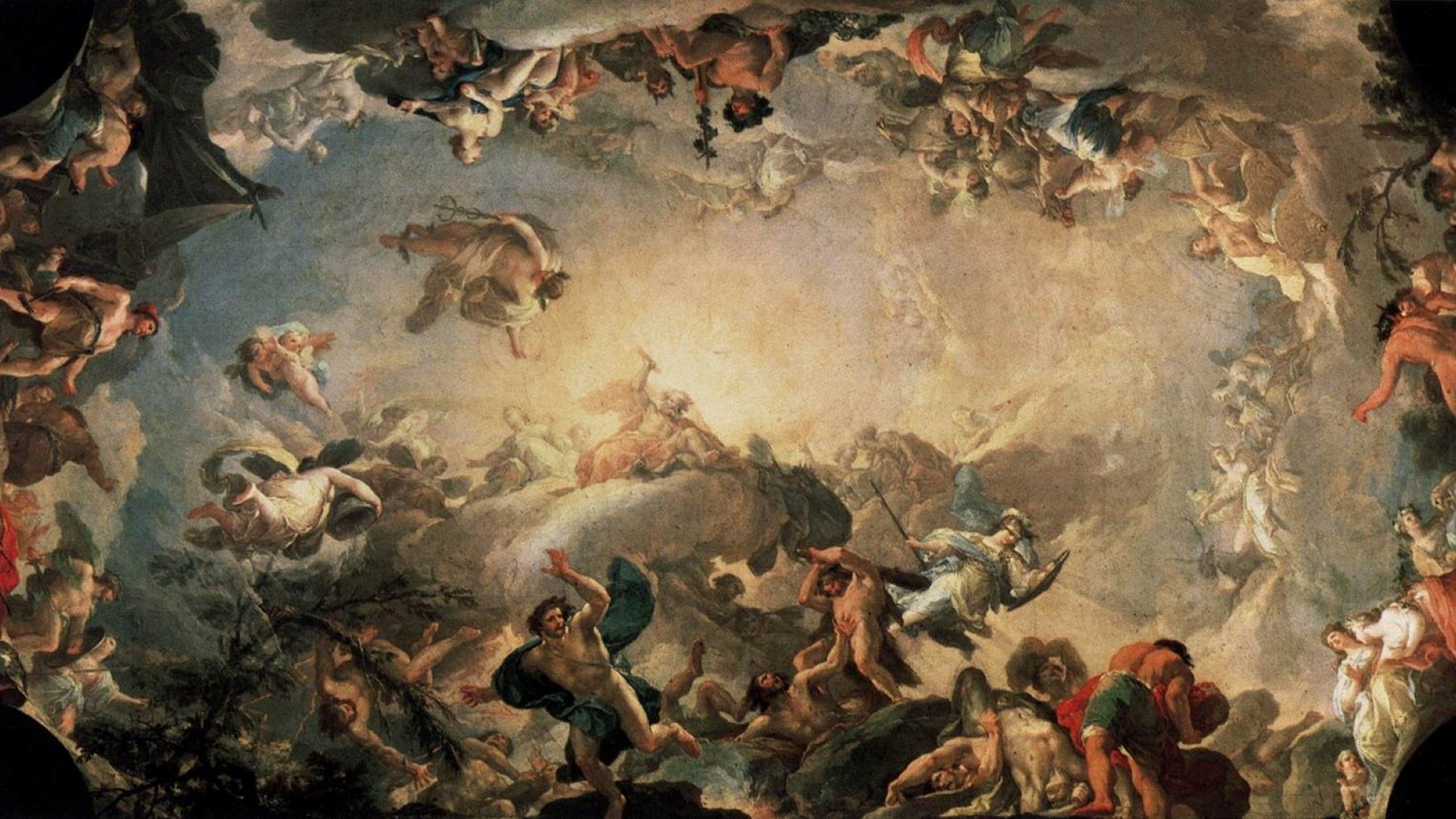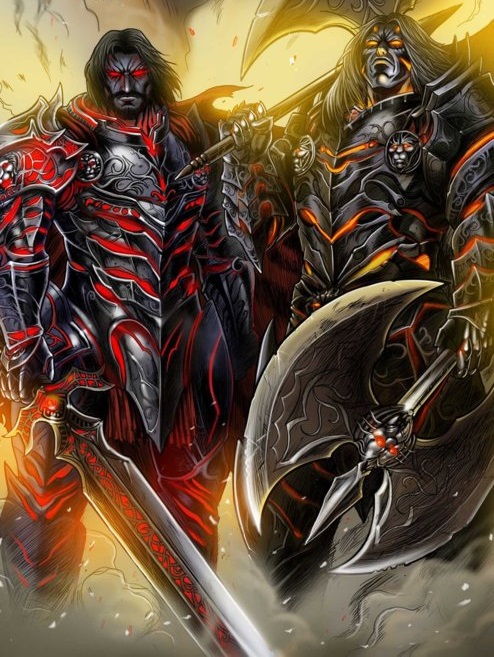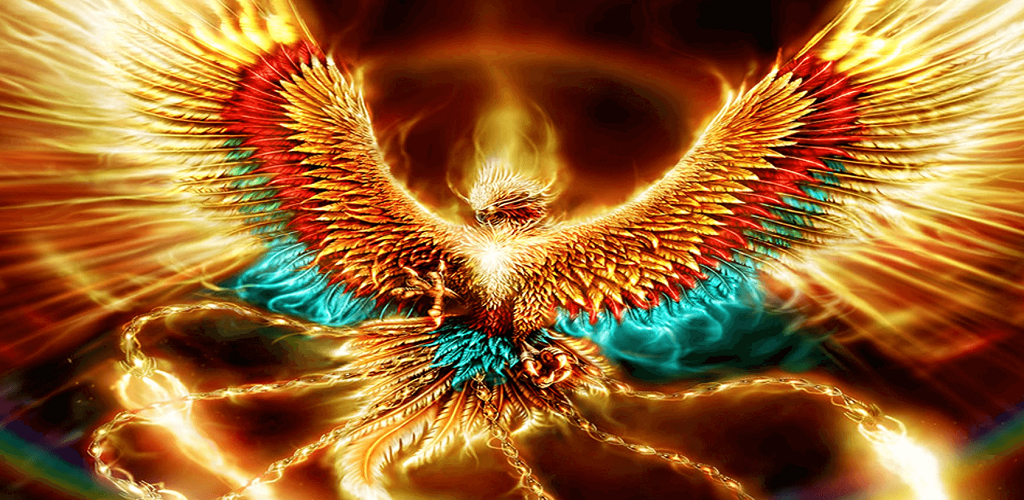
Phobos and Deimos

War is hell: so it has been said many times and by many different people throughout history. Blood, battle, death, destruction...it sounds pretty "cool" on the pages of a book and on the Hollywood glory of TV and the big CGI-covered movie screen, but in real life, war is nothing short of a nightmare come to life.
The Greeks took their warfare very seriously and naturally, they had several gods who covered the various elements of its horrors to the extreme. Ares, the god of war, obviously was the big daddy of battlefield slaughter, but he had some serious help from his family line to assist him in spreading the wealth around.
Assisting him in his butchery and bloodlust on Greece’s crimson-soaked war-scapes were his two charming (and we say that sarcastically) and sadistic sons, the gods PHOBOS, the god of fear and DEIMOS, the god of dread. These two twin-terrors helped dear old dad spread misery and chaos just a little further when the swords were slashing, the arrows were piercing, and the blood was flying.
Every scream was music to their ears and every death was a job well done. To Ares, they were everything he could have asked for in offspring!
To really dig in to both of these beastly brothers, we need to look at them together and also each separately. As a duo, they rode into battle with Ares (sometimes in the company of their sister, Eris, the goddess of chaos and discord), driving his chariot and spreading the fear of death into the battle-ready men who took to the battlefield around them.
A total surprise was that the brothers were the sons of Ares AND Aphrodite, the goddess of beauty and love; something they CLEARLY had no interest in. Aphrodite more than likely saw them as her psychopathic, horrific spawn whereas Ares couldn’t say enough about his little brutes to any and all who would listen!
Most of the Greeks avoided the two brothers like the plague, never building any temples or giving over any special offerings to them, except for one place... a place where their unique “talents” would be appreciated; the rugged, hardcore city-state of Sparta, where war was life and life was war.
THEY had a serious love-love relationship with the doom-bringers and invoked their names along with Ares’ in every fight they picked!
What was each of the brothers into individually? Well, let’s take a look at Phobos, all by his lonesome, first. PHOBOS, as mentioned, was the god who handled the emotions of fear and terror (“Phobos” directly translates to “fear” in ancient Greek!). Anyone who has ever felt those things coursing through their bodies knows that fear and terror are horrifying to deal with (and let’s face it, we all have...).
On the battlefield, those emotions would get jacked up to the max, and Phobos thrived and got his kicks off of the thrill of delivering them. Those who worshiped Phobos, usually warriors, often made bloody, grisly sacrifices in his name (no shocker there…). In one account it was said that seven warriors slaughtered a bull over a black shield and then "touching the bull’s gore with their hands they swore an oath by Phobos, who delights in blood..."
In the same tale, it was said that the followers of Phobos "beheaded strangers who came along in order to build a temple to Phobos (fear) from the skulls." Even crazier than some of those berserk psychos who worshiped Ares (and dad was probably intensely proud!). Warriors and heroes who worshiped Phobos, such as the hero, Hercules and the Mycenaean king, Agamemnon, carried shields with depictions of Phobos on them.
His physical appearance, not surprisingly, was said to have been one a very buff, ripped, youthful man, with a lion's (or lion-like) head. Picture a huge head of dark hair cascading down his shoulders, and you’d be close! In another account, it was said that he would stare "with eyes that glowed with fire. His mouth was full of teeth in a white row, fearful and daunting, eager to plunge amidst the fighting men..."
Is it any wonder that few Greeks other than the whacked-out soldiers of Sparta gave thanks to this guy?
Deimos, the other half of the team, was the god of dread, flight and battlefield rout (a.k.a. “total beatdown”). Sadly, there isn't much to report on Deimos. His name means "dread" in Greek and he really never shows up in any real way in any of the old myths, but we can imagine that he looks quite a bit like his brother...like a total beefcake-head-basher. The emotion of dread can be just as bad as terror; just think about all of the times you had to get up in front of your class and give a presentation when you were a kid and the serious anxiety that surged through you before and during. Then crank that up times one hundred and place yourself on a battlefield where your comrades are getting disemboweled all around you. Dread. Not a dance through the daisies, to say the least.
He may not have been a big ticket name, but make no mistake; he was present and he did some serious damage to those he came into contact with.
The brothers of fear and dread did have a few tales to tell in ancient times that didn’t necessarily have to do with mythology. In one piece of interesting historical trivia, according to the Greek historian Plutarch, Alexander the Great, the king of Macedonia, offered sacrifices to Phobos and Deimos on the eve of the Battle of Gaugamela (in all probability asking for Darius, the king of the Persians to be filled with fear and dread and to run for the hills like a screaming little wimp.).
Alexander wound up winning that battle and destroying Darius' army...so maybe, just maybe, the brothers were in attendance that day, giving Alex a hand! In another pretty fitting tribute, an American astronomer named Asaph Hall discovered and named the satellite of the planet Mars, "Phobos", which he discovered along with the second Mars satellite, "Deimos", in 1877. Phobos is the larger of the two satellites. Why’d he go with those names for the planet’s two moons?
Well, they go along with Mars, the Roman version of the brothers' dad, Ares! So, while there weren’t a ton of stories to be told in the mythological pages of Greek history, the bloody brothers did have a legacy even their old man Ares would be proud of!
[1]
Sources
Our Mobile Application
Check out Our Mobile Application "Ancient Greece Reloaded"


